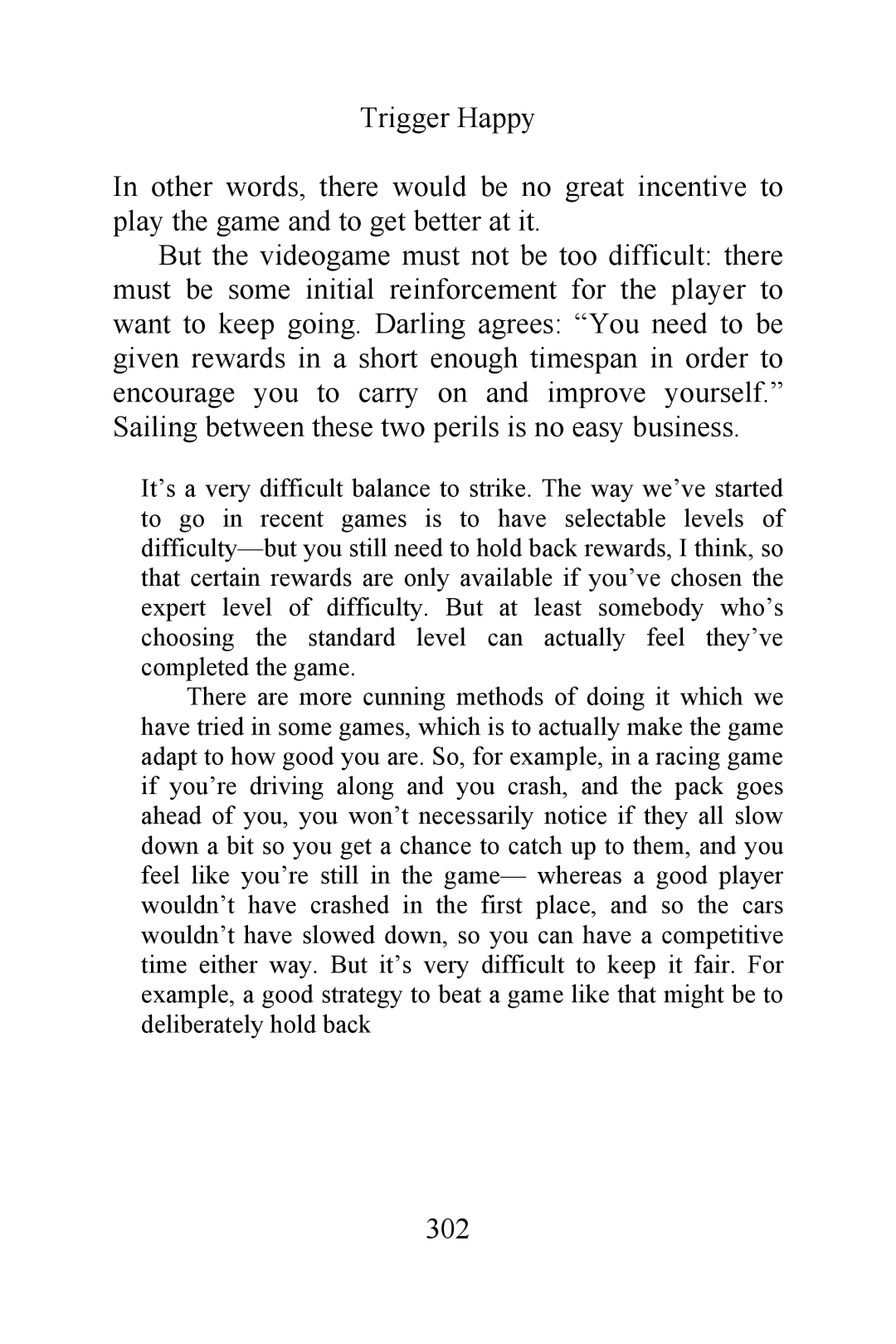Trigger Happy
In other words, there would be no great incentive to play the game and to get better at it.
But the videogame must not be too difficult: there must be some initial reinforcement for the player to want to keep going. Darling agrees: “You need to be given rewards in a short enough timespan in order to encourage you to carry on and improve yourself.” Sailing between these two perils is no easy business.
It’s a very difficult balance to strike. The way we’ve started to go in recent games is to have selectable levels of
There are more cunning methods of doing it which we have tried in some games, which is to actually make the game adapt to how good you are. So, for example, in a racing game if you’re driving along and you crash, and the pack goes ahead of you, you won’t necessarily notice if they all slow down a bit so you get a chance to catch up to them, and you feel like you’re still in the game— whereas a good player wouldn’t have crashed in the first place, and so the cars wouldn’t have slowed down, so you can have a competitive time either way. But it’s very difficult to keep it fair. For example, a good strategy to beat a game like that might be to deliberately hold back
